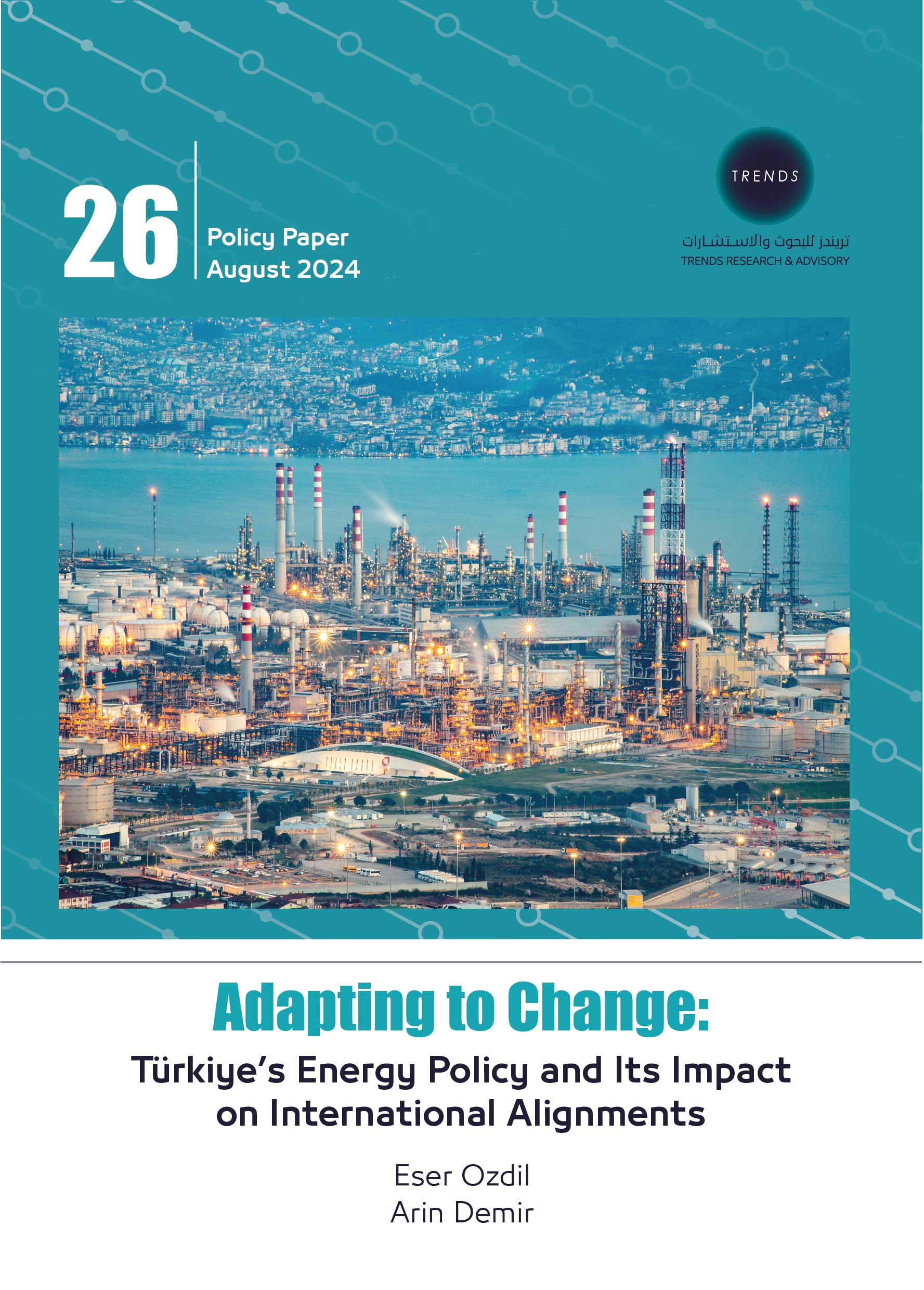This report examines Türkiye’s energy policy, which exemplifies a dynamic and strategic approach to navigating the complexities of global energy markets while adapting to international technical and regulatory necessities in a price-rational manner. At the heart of this policy are natural gas and renewable energy, major components that support Türkiye’s economic needs and directly influence its foreign policy orientations and maneuverability in international alliances.
The first crucial leg of Türkiye’s natural gas strategy, given its 99% dependence on gas imports, is characterized by flexibility and agility, enabling effective navigation of regional geopolitical developments and international market dynamics. Despite significant ongoing efforts to liberalize the natural gas market since 2001, the state-owned natural gas company BOTAŞ maintains substantial commercial influence, underlining the importance of political negotiations in shaping natural gas agreements. In this vein, Türkiye’s energy policy, influenced by geopolitical developments and economic considerations, positions it as a key player in regional natural gas supply, leveraging its LNG import capacity and strategic geographical location. Particularly, the impact of the Russia-Ukraine war on European and Russian natural gas policies underlines the importance of Türkiye’s strategic switching options between pipeline and LNG supplies.
The second crucial leg of Türkiye’s energy policy is renewable energy strategy, in accordance with the international regulatory and financial inclination in the energy markets toward renewables. This ambitious agenda is supported by financial subsidies for private sector investments, which mainly focus on constructing wind and solar power plants. These renewable investments emphasize domestic production and technological advancement, ensuring the localization of supply and technology. Türkiye is also newly developing coherent legislation for green hydrogen production, transportation, storage, and use, while nuclear energy policy remains a critical topic with ongoing and planned projects in accordance with Türkiye’s smart transition approach. Similarly, Türkiye’s energy transition planning emphasizes reducing fuel consumption and carbon emissions by transitioning from fuel-based vehicles to electric vehicles (EVs), thus enhancing energy efficiency.
Overall, this report delves into how Türkiye’s energy policy highlights a sophisticated blend of economic, geopolitical, and policy considerations within its current commercial, technical, and regulatory framework. It does so by assessing Türkiye’s current parameters and sectoral targets in natural gas, renewables, nuclear, and green hydrogen. It evaluates both long-term policy developments and the mid- to long-term aspects of Türkiye’s strategic planning for the energy transition. In the complex landscape of global energy geopolitics, Türkiye’s energy policy stands as a testament to its strategic adaptability and geopolitical acumen. At the heart of this policy are natural gas and renewable energy, crucial components that not only support the nation’s economic necessities but also shape its foreign policy orientations and economic strategies. Türkiye’s energy policy, particularly its natural gas strategy, is characterized by flexibility and agility in the decision-making process, enabling it to navigate the turbulent waters of regional and international dynamics.
From long-term contracts with traditional suppliers to investments in LNG infrastructure and renewable energy sources, Türkiye has meticulously crafted an energy framework that balances supply security, market competitiveness, and geopolitical considerations. Particularly, Türkiye’s central geographical position between Europe and Asia amplifies its role in the global energy market. In essence, Türkiye’s energy policy is not just about meeting domestic energy needs; it is a sophisticated instrument of foreign policy and economic strategy.





